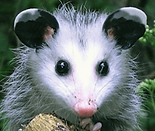
The Wildlife Rescue Center accepts wildlife patients by appointment.
Please call 636-394-1880 ext. 201 to arrange an animal admission.
HELP, I FOUND A WILD ANIMAL!
If you already have a wild animal contained, keep it warm and dry in a quiet place away from people and pets.
Please DO NOT offer food or water. Doing so most often causes more harm due to dietary sensitivities of wildlife and/or improper feeding technique.
Contact the Wildlife Rescue Center at (636) 394-1880 or animalcare@mowildlife.org if you have found a wild animal that:
-
Has obvious injuries or illness including wounds, bleeding, broken bones, or discharge from eyes or nose
-
Has been in the mouth of a dog or cat
-
Has flies swarming around it, fly eggs (look like tiny grains of rice in fur, on skin, or in clumps) or maggots on its body
IMPORTANT: Finding a young animal alone does not necessarily mean it needs "help" from a human. Wild babies are sometimes left alone while their parent(s) look for food. Many wild babies are accidently "kidnapped" every year by people with the best intentions. It is so common, wildlife rehabilitators have a code for it: "abduction with intent to rescue." If the young animal has no apparent injuries, returning it to its parent(s) is the best course of action.
Although it is best to avoid or minimize disturbances, wild parents can be surprisingly tolerant when it comes to taking care of their babies. Wild parents will NOT automatically "abandon" their young if they've been moved or touched by humans.
A young wild animal's best chance for survival is with its parent(s). Click the links to the right to learn more about when to intervene and how to keeping wild families together!

.png)






.jpg)